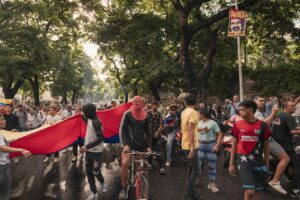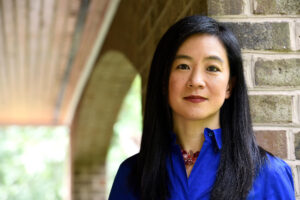
On July 28, Venezuela held one of the most consequential elections in its history. The country’s political opposition, led by Maria Corina Machado, overcame popular disillusionment, political divides and a rigged electoral system to earn a landslide victory for its unity candidate, Edmundo González Urrutia. According to one civil society group, estimates “extrapolated from the official vote count receipts” from a representative sample of local voting centers give González 66% of the vote. Venezuela’s opposition met the moment with an inspired pro-democracy campaign.
Yet, President Nicolás Maduro has refused to accept defeat. Instead, he ordered the National Election Council to proclaim his victory while blocking a transparent vote count, launching Venezuela into crisis. Machado and her allies are mobilizing a nonviolent action campaign to contest fraud and reclaim their hard-earned democratic victory. Machado has promised to endure “until the end,” and, so far, she and González have not backed down.
If the pro-democracy movement is to achieve a peaceful transition, it will need to strike a delicate balance between sustained nonviolent activism — which provides necessary leverage for change — and clear-eyed negotiations to reassure Maduro, regime elites and Chavistas that their core interests will survive a return to democracy.
For an in-depth description of how Venezuela’s pro-democracy movement can walk the line between nonviolent mobilization and negotiated compromise to ensure a democratic future for its people, read the full article published with the United States Institute of Peace.
KEY TAKEAWAYS

